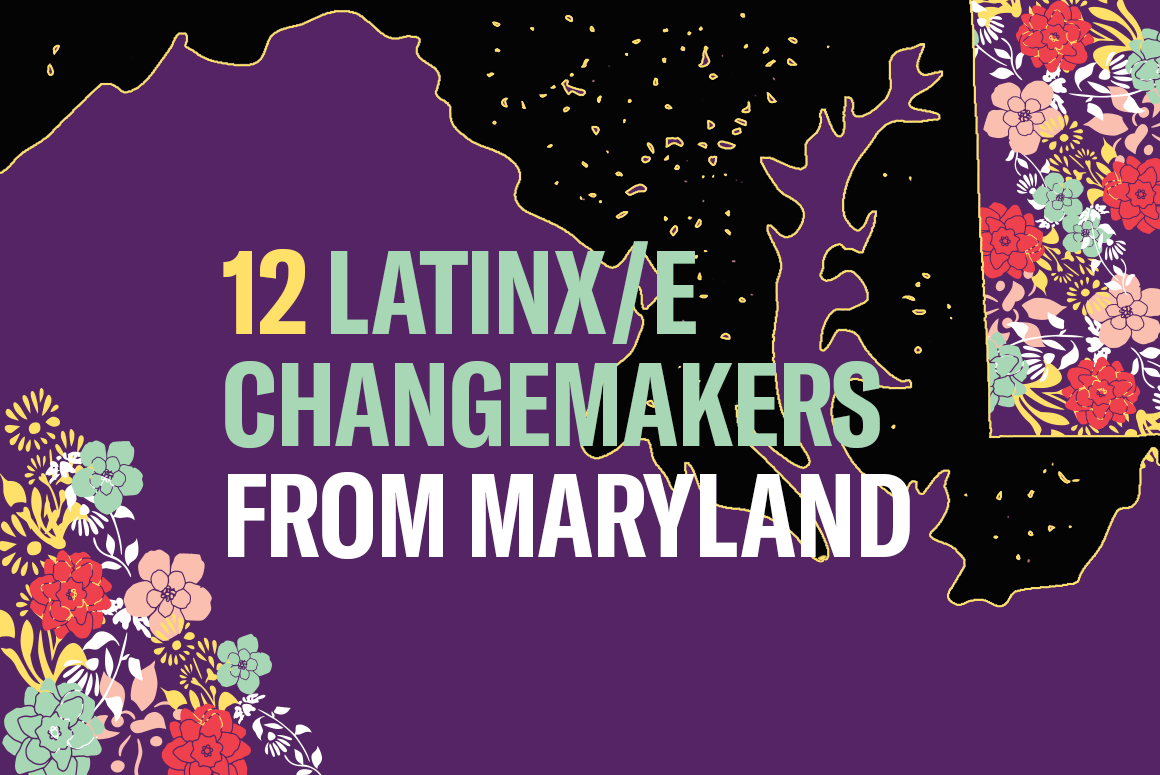News & Commentary
Latest Event
Day of Action 2026
Join the ACLU of Maryland, and our partners for a Day of Action on Monday, February 16, to demand justice for our immigrant communities and the safety of ALL Marylanders. At the event you’ll meet other advocates and hear directly from our champions on our shared goals for this legislative session. Then, we’ll head to Lawyers Mall to rally together and amplify our demands for change and action!
This is your chance to raise your concerns and advocate for our urgent priorities, including passing SB 245 the bill to end 287g programs in Maryland. Let’s make sure our lawmakers hear us loud and clear!
Your leadership is crucial here. Be part of the movement to protect civil liberties in Maryland and RSVP today!
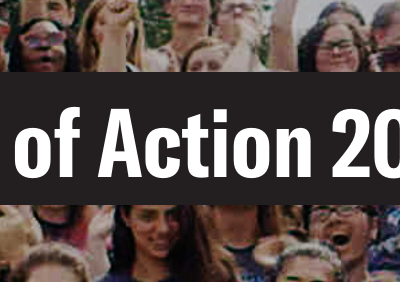
They Will Grow up and Remember: The “Zero Tolerance” Policy Against Migrant Children
To understand how thousands of children were separated from their families under the Trump administration, we need take a look at what has happened through the years.
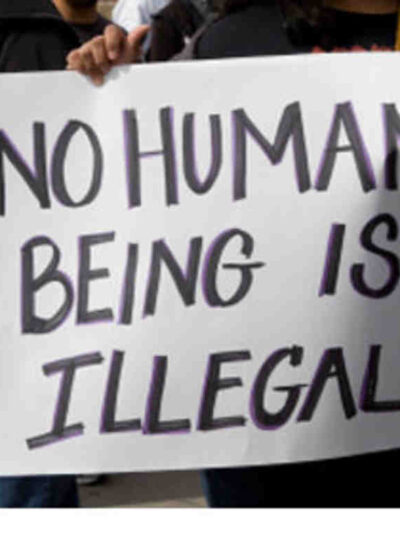
America’s Legacy: How ICE Promotes White Supremacy
For this Asian Pacific Islander Heritage Month, let us take time to remember that the policies of U.S. Immigration and Customs Enforcement (ICE) also affect Asian and Pacific Islanders in America. For one ACLU of Maryland client, ICE’s actions have been downright destructive to his family and his life. Mr. Lin is an undocumented immigrant from China married to a naturalized U.S. citizen, Ms. Lin, and is legally allowed to apply for his Green Card.
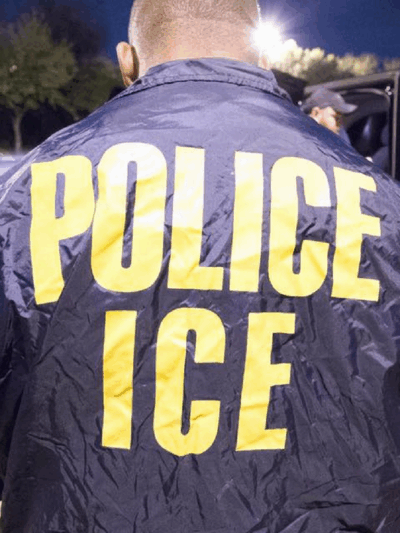
Md. leaders, will you take a pledge to support black kids?
Sometimes racism is subtle. That was not the case with the inflammatory and offensive tweet dehumanizing black children posted by the Fraternal Order of Police last weekend.

“No Justice. No Peace. No Private Police.”
“No Justice. No Peace. No Private Police,” was a chant that rang through the Charles Village and Waverly neighborhoods last Wednesday. On the 300th “West Wednesday,” John Hopkins University students and community members gathered together to rally against JHU’s planned private police force and contracts to train employees of the U.S. Immigrations and Customs Enforcement. While dozens of campus security watched ominously from the sidelines, people marched peacefully in the streets and then rallied inside JHU’s administration building.
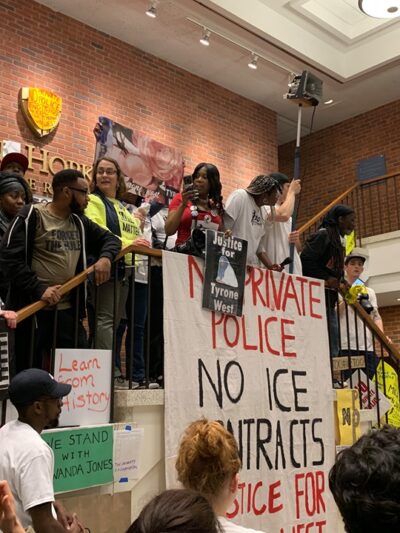
The MeToo Era: Sonya Zollicoffer’s Story
In the era of MeToo, brave people continue to speak out against sexual violence. Sonya Zollicoffer has joined voices across the nation by exposing the truth about the sexual harassment she endured while she was a police trainee in Prince George’s Police Department in 2001. Zollicoffer has also filed a legal challenge, along with members of the United Black Police Officers Association and the Hispanic National Law Enforcement Association, to racial discrimination and retaliation against officers and community members of color in the PGPD.
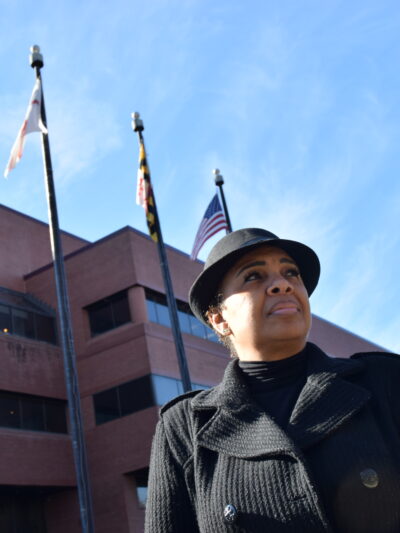
Keep Families Together, Keep Communities Whole
On March 29th, protestors gathered outside the U.S. Immigration and Customs Enforcement (ICE) office in Baltimore to stand witness and protect Abegninan Amouzou from being deported. Coach Fofo, his most popular nickname, is currently at risk for deportation after one of his regular check-ins with ICE. Unfortunately, Coach Fofo cannot return to Togo, his country of birth, over the fear of retaliation and violence against him for his political beliefs. For the last 20 years, Coach Fofo has been an outstanding resident in the United States.
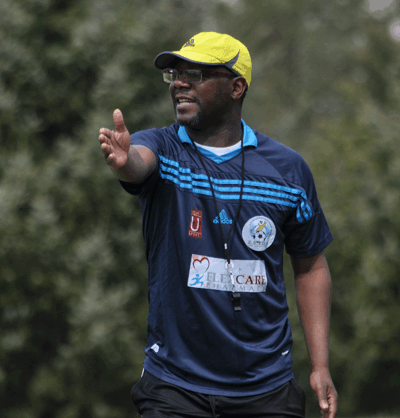
Baltimore City Schools: Protect Trans Children — Pass Policy JBB
Poster created by students in Wide Angle Youth Media in collaboration with GLSEN Maryland, The Office of Mayor Catherine E. Pugh and the Baltimore City LGBTQ Commission. Supported by the Open Society Institute-Baltimore.
By Nicole McCann
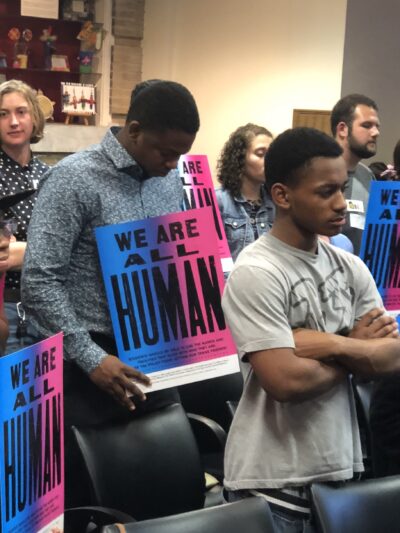
The Ongoing Fight for Justice in Detective Savage’s Case
In Pocomoke City, a small town on Maryland’s lower Eastern Shore with a centuries-long history of racial oppression, three Black officers have fought against racial abuse from white coworkers, supervisors, and officials. In 2016, Police Chief Kelvin Sewell, Lieutenant Lynell Green, and Detective Franklin Savage sued officials in Worcester County and Pocomoke City, challenging a conspiracy of race discrimination and retaliation. This week, Chief Sewell and Lt. Green reached financial settlements for the racism they endured while on the force, as well as a Consent Decree to bring reform to the Pocomoke City Police Department. But the fight for justice still continues for Detective Savage.
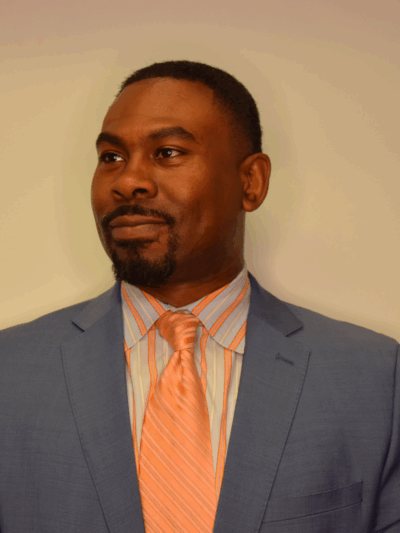
2 WEEKS TO GO! Education Legislative Updates
The “Blueprint for Maryland’s Future” (HB1413/SB1030) bill is the first action on recommendations from the Kirwan Commission. The bill as introduced includes funding for expanding pre-kindergarten, increasing teacher salaries, and providing grants for concentrated poverty and special education. The ACLU testified in support of this bill, urging state legislators to develop a targeted and comprehensive formula which is the only way to seriously begin to combat decades of gross underfunding for students and families. As of now, the Kirwan “Blueprint” bill is pending the results of the State Budget process. Currently, the House and Senate versions of the budget (SB125/HB100) do not match. Only the House version of the budget funds the entire Kirwan “Bluep
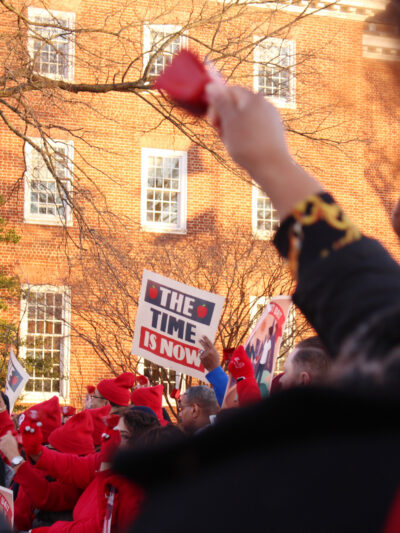
Stay Informed
Sign up to be the first to hear about how to take action.
By completing this form, I agree to receive occasional emails per the terms of the ACLU’s privacy statement.
By completing this form, I agree to receive occasional emails per the terms of the ACLU’s privacy statement.

